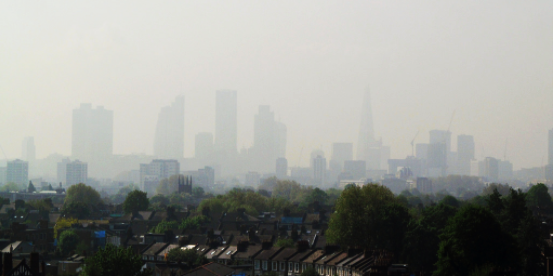
The whole Brexit negotiations have been bringing to the table doubts regarding almost every aspect of post Britain’s exit of Europe – not only in political terms, but also economical and environmental. In environmental terms, Out of an ecological perspective, the negotiations that involve the United Kingdom leaving the European Union pose many doubts concerning the UK’s future approach to climate change and also about what might happen to International Treaties signed by the UK as a member of the European Union.
The UK has been an important member of the EU negotiating team (Clutton-Brock, 2017). However, conservative MEPs have said that Brexit is not going to guarantee current environmental standards (The Guardian, 2017). As a consequence of this uncertainty, Dame Helen Ghosh, Director General of the National Trust, said that farmers are developing environmentally damaging agricultural practices that provides them with short-term revenue since there is not a clear government’s plan post-brexit. As a reaction to these practices, the process of EU market integration that has involved the harmonization of environmental standards across the Union could be endangered. Moreover, the Environmental Policy Forum that represents several environmental bodies, has claimed that the UK Government has not gone far enough in their environmental legislation. (Buchan,2017)
The Brexit negotiations can develop in two ways. On the one hand, the UK could reaffirm its support to environmentalism. On the other hand, the Brexit negotiations might not consider environmentalism as a priority. In this sense, the United Kingdom public opinion is seriously concerned about environmentalism. According to EU polls regarding attitudes of european citizens towards the environment that were carried out before Brexit, the UK is one of the countries that cares the most about environmentalism and climate change effects. As the Financial Times environment correspondent Pilita Clark claimed neither leave nor remain campaign have focused heavily on the implications that the Brexit could have on standards, air pollution, climate change, energy use or wildfire protection. However, the European Union Committee 12th Report of Session shows the importance of the UK in the EU environmental law as “the UK is leaving the EU, not Europe and its environment will remain inextricably linked to the environment of Europe”.
As stated by the British Chief Executive Matthew Bell, “our sense was that about half, 55% or so, of the emissions reduction that the UK would have made to 2030 would have come from policies that would have been negotiated at an EU level”. The UK not guaranteeing the environmental standards within the EU frame could not only affect negatively their own country but Europe as well. What is clear is, that if the UK government decides to continue with its commitment towards environmentalism, cooperation with the European Union will be key in their leaving transition.
Jimena González is currently a student at LSE. Her day to day life is based on challenging herself, writing essays and discovering what the city of London has to offer.

 The ’Ndrangheta’s Infiltration and Threat to European Institutions
The ’Ndrangheta’s Infiltration and Threat to European Institutions  From Paper to Practice: How Grassroots Norms Undermine Gender Rights in Pakistan
From Paper to Practice: How Grassroots Norms Undermine Gender Rights in Pakistan  Exploited Childhoods: The Role of Global Corporations in Perpetuating and Mitigating Child Labour
Exploited Childhoods: The Role of Global Corporations in Perpetuating and Mitigating Child Labour  Human Rights Challenges in Addressing SLAPPs in Media, NGOs and Journalism in the EU
Human Rights Challenges in Addressing SLAPPs in Media, NGOs and Journalism in the EU 


